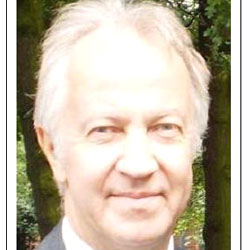IOC Risks Youth Olympics Muddle as Buenos Aires Celebrates 2018 Win – Keir Radnedge
July 5, 2013
The success of Buenos Aires in winning host rights to the Youth Olympic Games in 2018 raised new issues over the entire concept.
The capital of Argentina defeated Medellin of Colombia 49-39 in the second round of voting after seeing off Glasgow in the first round in an extraordinary session of the full International Olympic Committee in Lausanne.
Hence the Olympic movement will be returning to South America just two years after the ‘senior’ summer Games in Rio de Janeiro. Not only that, but Buenos Aires will be hosting the important Session [congress] in September at which the IOC will choose a new sport for the 2020 summer Games, the 2020 host city and then a new president.
IOC president Jacques Rogge said later: “Buenos Aires won on the basis of its experience in staging major sports events, great capacity of the venues with an Olympic corridor and also because of its philosophy of engaging with youth at all levels including working with social media and having the same philosophy as we have in the Youth Olympic Games.”
Latin trend
Glasgow (13 votes only) may ponder that, in such a case, it lost not in terms of proposal but in terms of politics. The clear strength of the Latin vote may make observers revisit their opinion of Madrid’s prospects of winning the 2020 summer Games when the decision is taken later this year in . . . Buenos Aires.
The YOG was Rogge’s brainchild. Not all of his members are convinced about the concept and it will be intriguing to see how it evolves under a new leader after the Belgian’s retirement in September.
All six candidates to succeed him are agreed on the Olympic movement’s need to re-connect with the younger generation but perhaps not all are convinced that the YOG is the correct path.
The idea may come further into question after the Buenos Aires decision since this is a city which, clearly, has the capacity to stage the ‘senior’ Olympic Games. The knowledge that bidding is open to a major city may make smaller venues think twice in future about spending heavily on a bid process which is weighted against them.
Presentations
The cities each had an opportunity to explain their concept to the IOC before the vote.
Buenos Aires set out its stall in a comparatively straightforward style with all the essential information delivered ahead of an exciting closing montage. This featured goal-grabbing action from Barcelona superstar Leo Messi plus a contribution from Evita – albeit the musical version.
The closing line of the excerpt from Don’t Cry for Me Argentina was the neatly-judged: “I kept my promise, don’t keep your distance.”
 The message was obviously taken to heart by the IOC members. This was all the more remarkable considering the way the city and its bid had stumbled initially over the crucial issue of financial guarantees.
The message was obviously taken to heart by the IOC members. This was all the more remarkable considering the way the city and its bid had stumbled initially over the crucial issue of financial guarantees.
Next up was Glasgow with the Olympic family advantage of having vice-president Sir Craig Reedie to lead off with a presentation which mixed up people, information and images.
Reedie addressed immediately the issue of a possible return to the UK so soon after London 2012.
Youth outreach
“I understand this question,” said Reedie, “but I believe the challenge for the Olympic movement is to focus on the most effective global youth outreach strategy that is possible. Glasgow gives us the best chance.”
However, despite a closing appeal from London 2012 leader Lord Seb Coe, the Glasgow bid was voted down immediately. Reedie suggested to reporters that probably the vote came too soon, less than a year after the London Games.
The most intriguing bid was the one from Medellin, a city which is turning around its image after years of dread association as centre of the Colombian drugs cartels.
Medellin’s presentation was headed by the most senior politician in view, indeed the most senior politician possible in Juan Manuel Santos, the state President.
In a powerful personal address about the transformation of his country he said: “The Youth Olympic Games will represent the largest and most important international event to take place in my country’s history.
“It will bring a tremendous boost to Colombia’s younger generation. Colombia and Medellin has moved forward in an amazing way from very difficult times.
Financial backing
“As President of Colombia I guarantee our government’s financial backing to meet the needs of the Games and I want to guarantee the security and safety of all visitors.”
The members clearly thought that, for all the potential of the Colombian bid, it represented too daring a vote at this early stage in Medellin’s new era.
The evaluation report on the cities was presented formally by the commission’s German chairman, IOC member Claudia Bockel.
She said that each of the three cities “could organise successfully the Youth Olympic Games even though each proposes a very different and unique Games project.”
But, whichever city was chosen, the “Olympic movement will be gaining a strong partner presenting minimal risk to the IOC.”
Hence, Buenos Aires.
Keir Radnedge has been covering football worldwide for more than 40 years, writing 33 books, from tournament guides to comprehensive encyclopedias, aimed at all ages.
His journalism career included The Daily Mail for 20 years as well as The Guardian and other national newspapers and magazines in the UK and around the world. He is a former editor, and remains a lead columnist, with World Soccer, generally recognised as the premier English language magazine on global football.
In addition to his writing, Keir has been a regular analyst for BBC radio and television, Sky Sports, Sky News, Aljazeera and CNN.
Keir Radnedge’s Twitter: @KeirRadnedge
{jcomments on}


